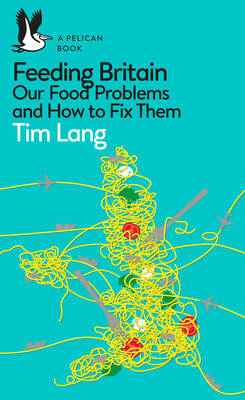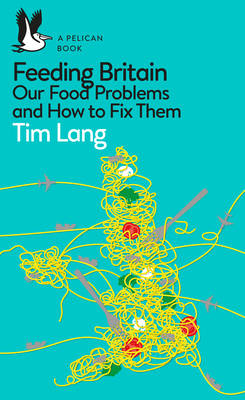
Bedankt voor het vertrouwen het afgelopen jaar! Om jou te bedanken bieden we GRATIS verzending (in België) aan op alles gedurende de hele maand januari.
- Afhalen na 1 uur in een winkel met voorraad
- In januari gratis thuislevering in België
- Ruim aanbod met 7 miljoen producten
Bedankt voor het vertrouwen het afgelopen jaar! Om jou te bedanken bieden we GRATIS verzending (in België) aan op alles gedurende de hele maand januari.
- Afhalen na 1 uur in een winkel met voorraad
- In januari gratis thuislevering in België
- Ruim aanbod met 7 miljoen producten
Zoeken
Omschrijving
The British were once famous worldwide for being uninterested in food and our food being brown. This is no longer the case. UK food has changed remarkably in the last half century. Our food has Europeanised (pizza is children's favourite food) and internationalised (we eat the world's cuisines), yet the food culture is fragmented, a mix of mass 'ultra-processed' foods (high in salt, sugar and fat) alongside food as varied and good as anywhere on the planet. This is partly the effect of Europeanisation but mainly because the UK has got wealthier, allowing aspirations and tastes to flower. This book takes stock of the UK food system: where it comes from, what we eat, its impact, its fragilities and strengths. It's a book on the politics of food. It argues that the UK's Brexit vote is an enforced opportunity to review our food system. This is sorely needed. A deep reflection by the UK state began after the shock of the Oil/Food Commodity price spike 2007-08 and the Great Recession. This policy was, alas, curtailed by the Coalition and Tory governments which both argued the food system should just keep going as it had been. The future, they said, lay in a burst of agri-technology and more exports to pay for the massive food imports. Feeding Britain argues that this and other approaches are short-sighted, against the public interest, and possibly even strategically folly. Setting a new course for UK food is no easy task, however, but it's a process, this book will urges, that needs to begin.
Specificaties
Betrokkenen
- Auteur(s):
- Uitgeverij:
Inhoud
- Aantal bladzijden:
- 608
- Taal:
- Engels
- Reeks:
Eigenschappen
- Productcode (EAN):
- 9780241404805
- Verschijningsdatum:
- 1/05/2021
- Uitvoering:
- Paperback
- Formaat:
- Trade paperback (VS)
- Afmetingen:
- 112 mm x 180 mm
- Gewicht:
- 317 g

Alleen bij Standaard Boekhandel
+ 36 punten op je klantenkaart van Standaard Boekhandel
Beoordelingen
We publiceren alleen reviews die voldoen aan de voorwaarden voor reviews. Bekijk onze voorwaarden voor reviews.









